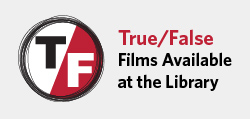Dystopias are everywhere (at least in the world of books). A spike in sales of classic dystopian literature and an increase in contemporary dystopian stories mirror how we turn to these stories at times of uncertainty. These visions of society reflect the fears and concerns of the times they were written (as well as the fears and concerns of their authors).
Literally, a dystopian society is the opposite of the ideal society, or, a utopia. So, we are discussing less than ideal societies here. Much less. Consider “Know Your Dystopias” your tour of places you would not want to visit in the real world.
In recognition of Banned Books Week we will start with Ray Bradbury’s book-burning dystopia in “Fahrenheit 451.” Named for the temperature at which paper burns, the novel is set in an upside-down world where the job of firemen is starting fires to destroy books. All books are illegal and the populace is entertained (not informed) by wall-sized television screens, preferably on each wall of the parlor, if one can afford it. A threat of war looms, but despite reminders in the form of jets periodically screaming overhead the population seems sanguine about it.
We learn about this society as we follow a fireman named Montag. Montag is unquestionably content with his job and his life until personal events start pushing him to question things. On a call from the firehouse, Montag witnesses a woman choosing to stay in her home and burn with her books rather than live without them. This is a tipping point, and Montag wants to learn what is in the books he has been destroying and how they became illegal.
Bradbury’s primary inspiration for “Fahrenheit 451” was “Darkness at Noon,” a novel by Arthur Koestler about the victim of a show trial in Stalinist Russia. Bradbury said Koestler was one of the few to capture the “intellectual holocaust” Stalin achieved. Bradbury’s vision of a future “intellectual holocaust” is a world without books and ideas; it is a shallow one of perpetual distractions and materialism. Citizens are inarticulate and as ignorant and disconnected from their collective history as they are from their own thoughts and feelings.
In “Fahrenheit 451” books are a threat to those in power, but they also offer hope of a better world to the outcasts. Bradbury saw power and liberation in books. Unable to afford college, he educated himself by going to the library three days a week for ten years (he also wrote “Fahrenheit 451” on typewriters in the basement of the UCLA library). Personally, I can point to this novel as setting me on the path to being an avid reader. I was assigned “Fahrenheit 451” at the age of 14. I had not been hooked by a book like I was by this one. That prodded me to read “The Martian Chronicles,” which led to a lifelong love of reading.
Did Bradbury predict the future? I’m currently writing this in a library full of books, and firemen still extinguish fires. However, the giant TV screens in the novel that engulf an entire room are like our increasingly large and sophisticated TVs. The addictive appeal of the shows reminds me of phrases like “peak TV,” and “binge-watching.” HBO is currently filming an adaptation of “Fahrenheit 451.” No release date has been announced at this time.


